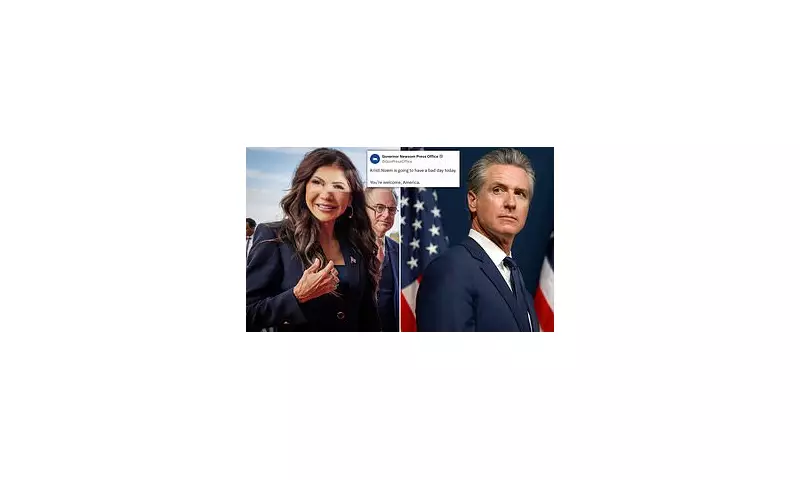
In a move that has ignited a fierce political debate, California Governor Gavin Newsom has been granted Secret Service protection, making him one of the few governors in US history to receive such extensive federal security.
The unprecedented security arrangement, typically reserved for presidential candidates, cabinet members, and visiting foreign dignitaries, has drawn sharp criticism from political rivals, particularly South Dakota Governor Kristi Noem.
Noem's Scathing Critique
Governor Noem launched a blistering attack on the decision, questioning both the necessity and the funding of Newsom's security detail. "The American people are paying for Gavin Newsom's protection while he campaigns across the country attacking our next President," Noem stated, framing the issue as a misuse of taxpayer money.
Her comments highlight the deepening partisan divide over security protocols for high-profile politicians, particularly those seen as potential future presidential candidates.
The Security Justification
According to sources familiar with the arrangement, the Secret Service protection was approved following thorough risk assessment by federal authorities. Newsom, who has become increasingly visible on the national stage through his political advocacy and frequent media appearances, was deemed to face heightened security threats.
The protection detail comes at a time when the governor has been actively campaigning against conservative policies and figures, positioning himself as a prominent voice within the Democratic Party.
Funding Controversy
The financial aspect of the security arrangement has become a particular point of contention. Typically, states bear the cost of protecting their governors through state law enforcement agencies. The federal funding of Newsom's protection has raised questions about precedent and fairness among other governors.
Noem emphasized this point, noting that "other governors don't get this special treatment and have to use their own state's resources for protection."
Political Implications
This security development occurs against the backdrop of increasing political polarization and concerns about the safety of public officials. The arrangement places Newsom in an exclusive category of protection rarely extended to state governors, underscoring his significant national profile and potential future political ambitions.
As the debate continues, questions remain about the criteria for granting such protection and whether other governors with national profiles might seek similar arrangements in the future.





